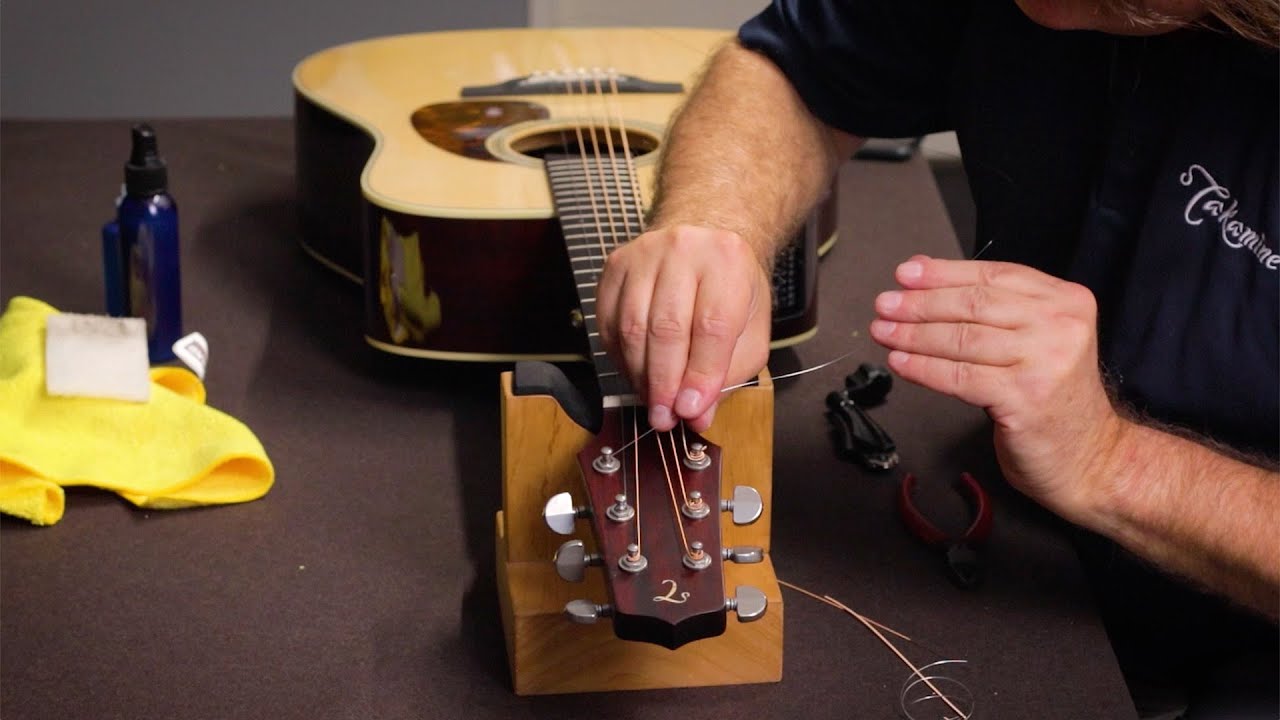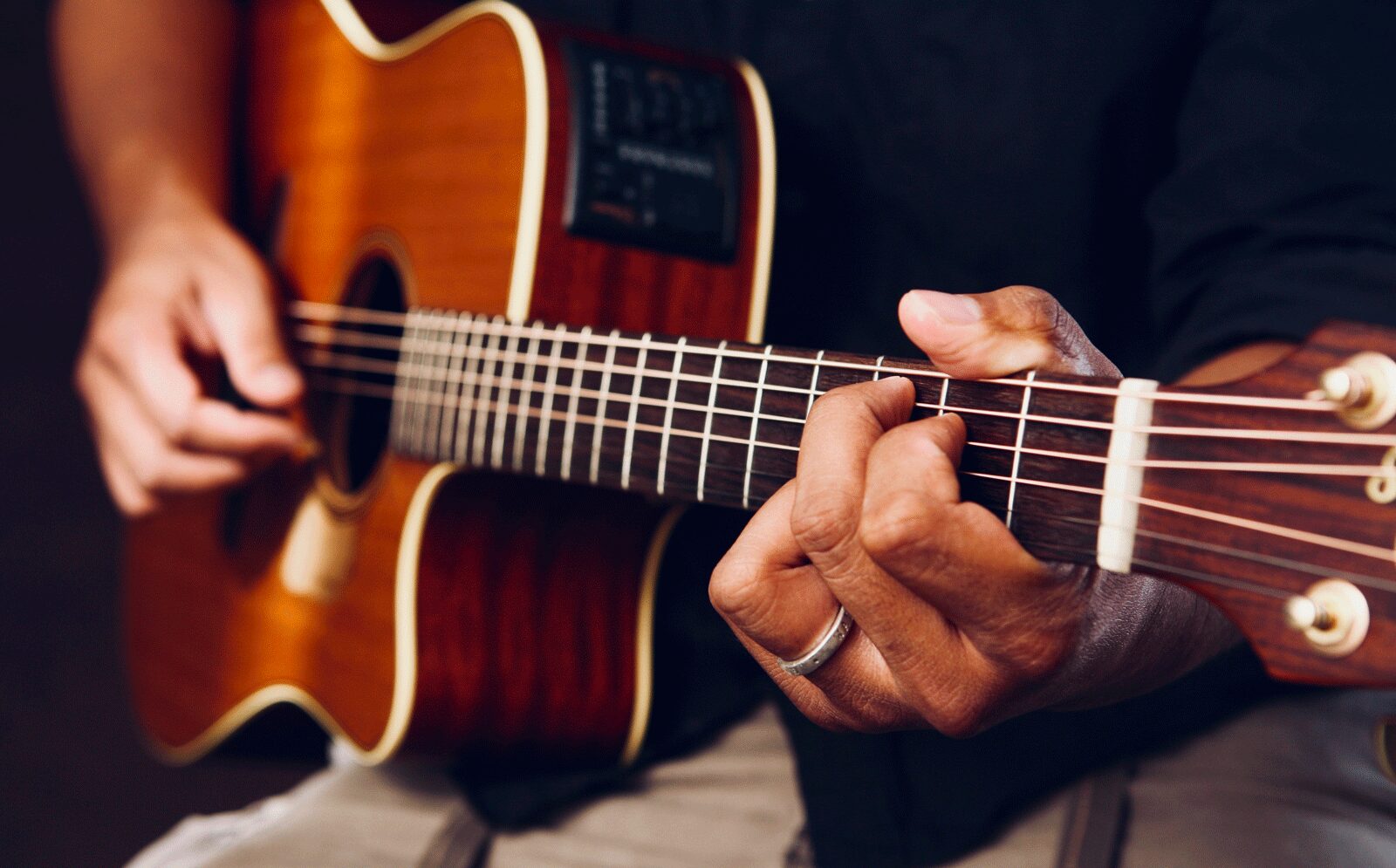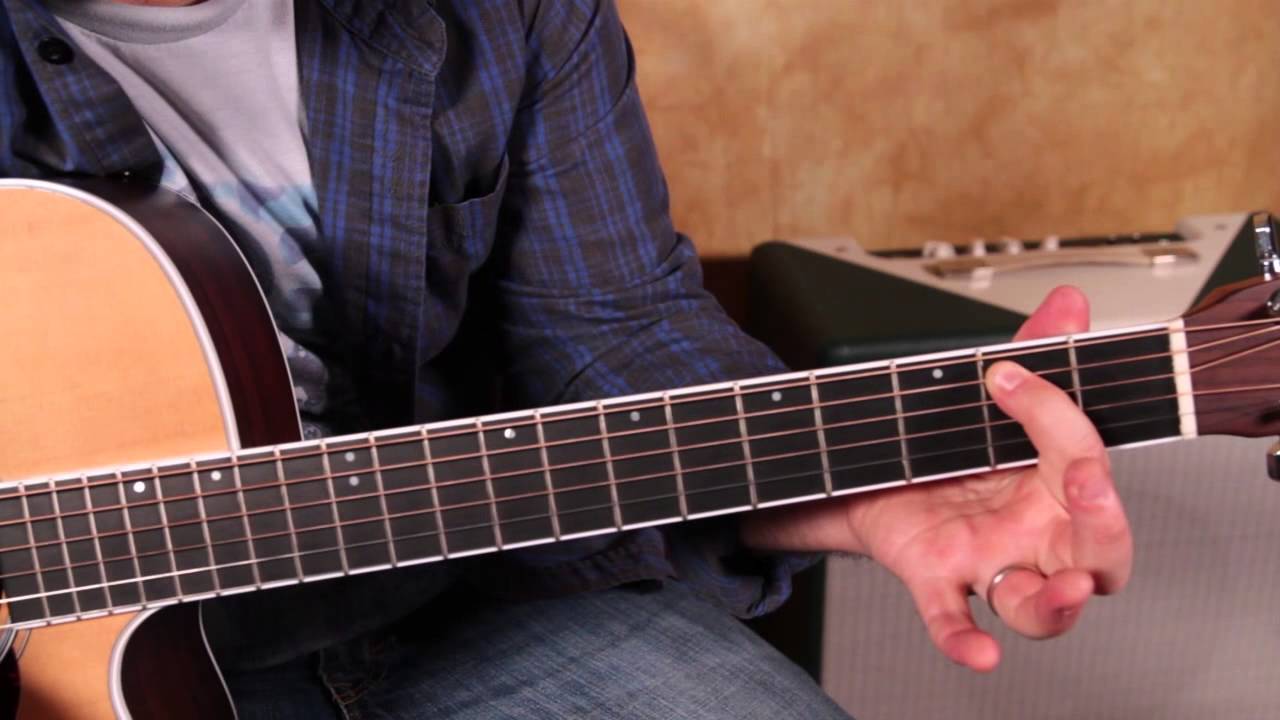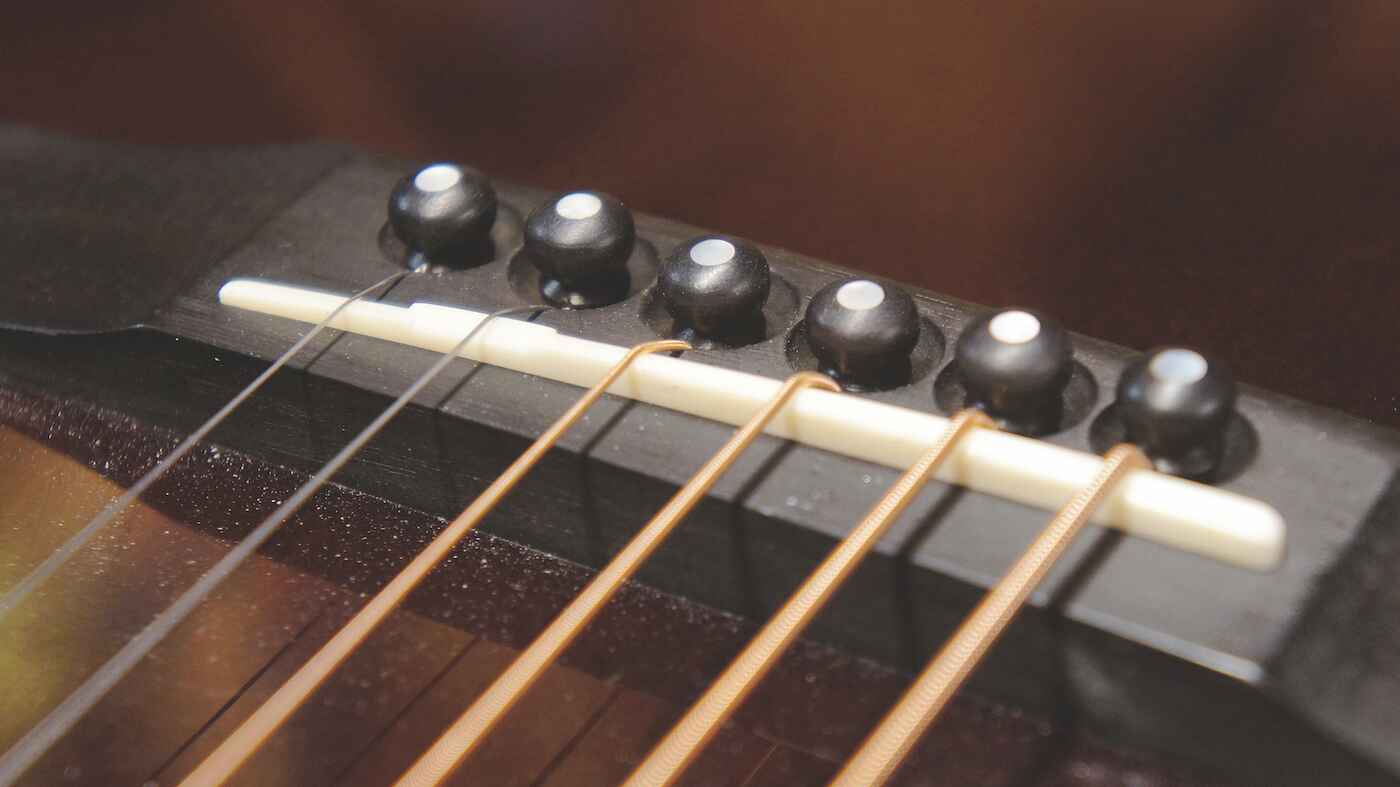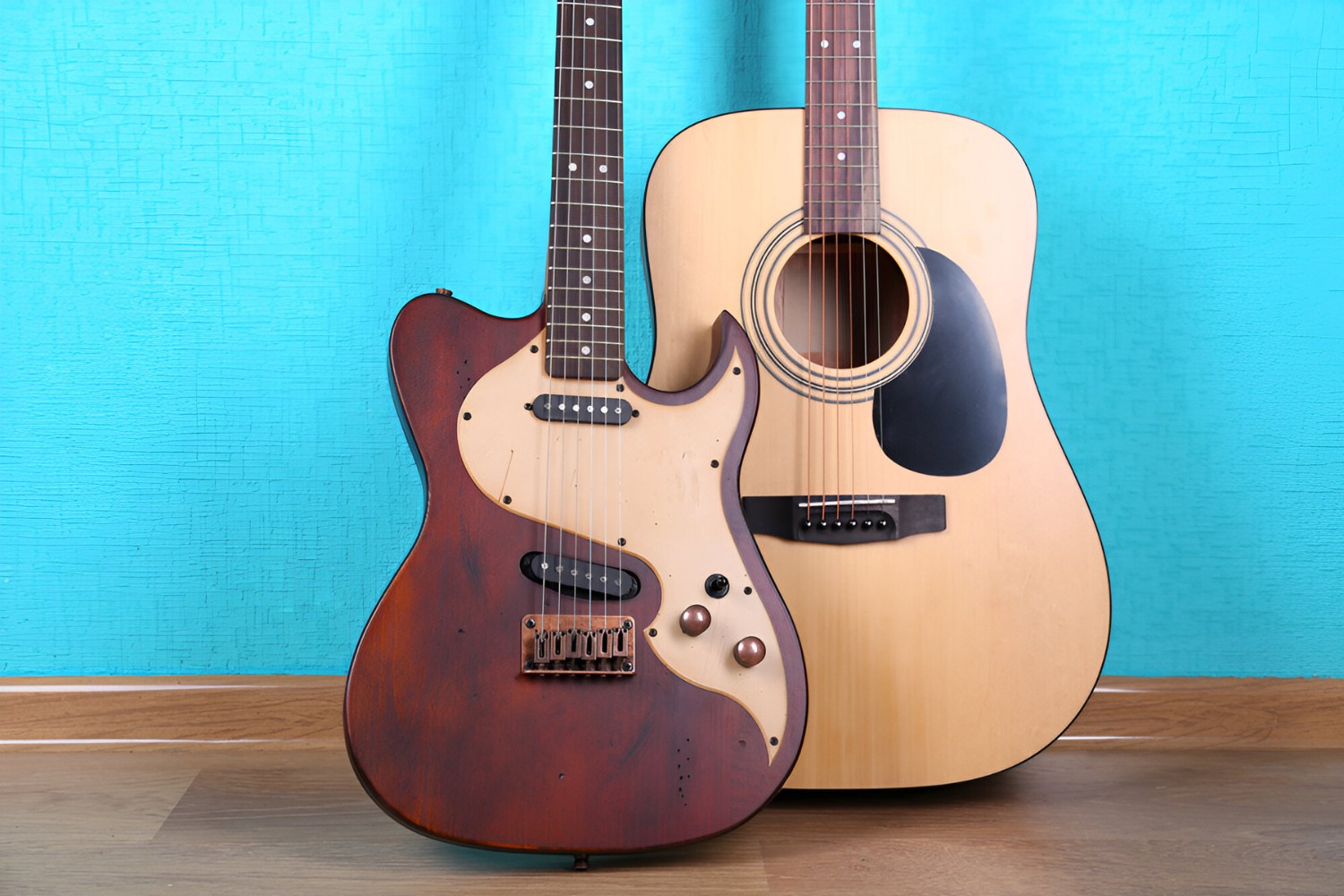Introduction
Learning to play the acoustic guitar is a rewarding and fulfilling journey that offers a sense of accomplishment and joy. Whether you're a complete novice or have some musical background, embarking on this musical endeavor can be both exciting and challenging. The time it takes to master the acoustic guitar varies from person to person and is influenced by several factors. This article will explore the different stages of learning the acoustic guitar, the time it may take to progress through each stage, and valuable tips for accelerating the learning process.
Embarking on the journey of learning to play the acoustic guitar requires dedication, patience, and a genuine passion for music. From understanding the instrument's basic anatomy to mastering complex fingerpicking techniques, the learning process is both intricate and rewarding. Throughout this article, we will delve into the various stages of learning the acoustic guitar, providing insights into the time frames associated with each stage and offering practical tips to expedite your progress.
Learning any musical instrument is a highly individualized experience, influenced by factors such as natural aptitude, practice habits, and the availability of quality learning resources. By understanding the key elements that impact the learning process and embracing a proactive mindset, aspiring guitarists can navigate their musical journey with confidence and determination. Whether you aspire to strum your favorite tunes around a campfire or perform on a professional stage, the journey of learning to play the acoustic guitar is a fulfilling pursuit that offers a lifetime of musical enjoyment.
As we delve into the intricacies of mastering the acoustic guitar, it's essential to approach this journey with an open mind and a willingness to embrace the challenges and triumphs that come with musical growth. Whether you're a beginner seeking guidance or an intermediate player looking to enhance your skills, this article aims to provide valuable insights and actionable tips to support your musical aspirations. Let's embark on this musical odyssey together, exploring the nuances of learning to play the acoustic guitar and uncovering the secrets to accelerating your progress on this melodious adventure.
Factors Affecting Learning Time
The time it takes to learn to play the acoustic guitar is influenced by a myriad of factors that shape an individual’s musical journey. Understanding these factors can provide valuable insights into the learning process and help aspiring guitarists set realistic expectations for their progress. Here are several key elements that can impact the time it takes to master the acoustic guitar:
- Practice Consistency: The frequency and consistency of practice sessions play a pivotal role in skill development. Regular, focused practice sessions can expedite learning and skill acquisition, while sporadic or irregular practice may impede progress.
- Learning Environment: The learning environment, including access to quality learning resources, supportive instructors, and a conducive practice space, can significantly impact the learning curve. A positive and inspiring learning environment can enhance motivation and skill development.
- Musical Background: Individuals with prior musical experience, such as knowledge of music theory or proficiency in other instruments, may find certain aspects of learning the acoustic guitar more accessible, potentially reducing the overall learning time.
- Individual Learning Style: Each aspiring guitarist possesses a unique learning style, whether it’s visual, auditory, or kinesthetic. Understanding and leveraging one’s preferred learning style can optimize the learning process and accelerate skill acquisition.
- Goal Setting: Clear and realistic musical goals can shape the learning trajectory. Whether aspiring to strum simple chords for personal enjoyment or aiming for advanced fingerstyle mastery, aligning learning objectives with personal aspirations can influence the time it takes to achieve proficiency.
- Patience and Perseverance: The willingness to embrace challenges, overcome setbacks, and persist through the learning curve is essential. Developing patience and perseverance can sustain motivation and drive progress, impacting the overall learning time.
By recognizing and navigating these influential factors, aspiring guitarists can gain a deeper understanding of the learning process and proactively engage in strategies that optimize their musical growth. Embracing these elements as integral components of the learning journey can empower individuals to chart a path toward mastering the acoustic guitar with confidence and determination.
Beginner Stage
The beginner stage of learning to play the acoustic guitar marks the initial phase of musical exploration and skill development. During this stage, aspiring guitarists acquaint themselves with the instrument, fundamental techniques, and basic musical concepts. The duration of the beginner stage can vary based on individual progress and dedication, typically spanning from a few months to a year.
At the onset of the beginner stage, aspiring guitarists focus on foundational elements such as understanding the guitar’s anatomy, tuning the instrument, and mastering essential chords and strumming patterns. Developing proper finger positioning, coordination, and basic rhythm comprehension are integral aspects of this stage. Additionally, beginners may explore introductory music theory concepts, including note reading, rhythm notation, and chord progressions, to build a strong musical foundation.
While progress during the beginner stage is influenced by factors such as practice consistency, learning resources, and individual aptitude, it is common for beginners to experience a gradual improvement in dexterity, chord transitions, and rhythmic accuracy. As skills develop, beginners may gain confidence in playing simple melodies, strumming popular songs, and understanding basic music notation.
Engaging in structured practice routines, leveraging beginner-friendly instructional materials, and seeking guidance from experienced instructors can expedite skill development during this stage. As beginners immerse themselves in the world of acoustic guitar playing, patience, persistence, and a passion for learning become invaluable assets in navigating the initial challenges and triumphs of musical discovery.
Embracing the beginner stage as a period of foundational growth and musical exploration sets the stage for a fulfilling journey toward acoustic guitar proficiency. By establishing a solid grasp of fundamental techniques and musical concepts, beginners lay a robust groundwork for progressing to the intermediate stage with confidence and enthusiasm.
Intermediate Stage
The intermediate stage of learning to play the acoustic guitar signifies a significant progression in skill development and musical proficiency. Aspiring guitarists transitioning into the intermediate stage have typically gained a solid foundation in fundamental techniques and are poised to delve into more complex playing styles and musical expressions. The duration of the intermediate stage varies widely, often spanning from one to three years, depending on individual practice habits, learning resources, and musical aspirations.
During the intermediate stage, guitarists focus on expanding their repertoire of chords, mastering advanced strumming patterns, and delving into fingerstyle techniques. Additionally, this stage often involves a deeper exploration of music theory, including scales, modes, chord extensions, and improvisational concepts. Intermediate players may also begin to explore diverse musical genres, honing their ability to interpret and play a wide range of musical styles with nuance and expression.
One hallmark of the intermediate stage is the development of finger dexterity, precision, and the ability to execute more intricate chord progressions and melodic passages. Aspiring guitarists in this stage often experience a heightened sense of musical creativity, exploring songwriting, composition, and arrangement techniques to express their unique musical voice.
Moreover, the intermediate stage presents opportunities for aspiring guitarists to engage in collaborative music-making, whether through ensemble playing, jam sessions, or performance opportunities. Embracing these musical interactions fosters a deeper understanding of musical dynamics, ensemble communication, and stage presence, further enriching the guitarist’s musical journey.
As intermediate players navigate the complexities of the acoustic guitar, maintaining a proactive approach to learning, seeking guidance from experienced mentors, and immersing themselves in diverse musical experiences can catalyze their growth and proficiency. Embracing the challenges and creative possibilities of the intermediate stage paves the way for aspiring guitarists to evolve into versatile, expressive musicians with a deep understanding of the acoustic guitar’s potential for musical storytelling and emotive expression.
Advanced Stage
The advanced stage of mastering the acoustic guitar represents the pinnacle of skill and artistry, where aspiring guitarists exhibit a profound command of the instrument, advanced technical prowess, and a rich musical vocabulary. This stage is characterized by a deep exploration of intricate fingerstyle techniques, advanced chord voicings, melodic improvisation, and an unparalleled ability to convey emotion and storytelling through the instrument. The duration of the advanced stage is highly individualized and can extend for several years as guitarists continue to refine their craft and artistic expression.
During the advanced stage, aspiring guitarists delve into the nuances of advanced fingerstyle techniques, including intricate fingerpicking patterns, harmonics, percussive elements, and polyphonic textures. Mastery of complex chord voicings, extended harmonies, and modal interchange further expands the guitarist’s harmonic palette, enabling sophisticated musical expression and composition.
One hallmark of the advanced stage is the development of melodic improvisation skills, enabling guitarists to fluently navigate scales, modes, and melodic motifs with expressive freedom and creativity. Advanced players exhibit a heightened sense of musical phrasing, dynamics, and tonal nuances, infusing their performances with emotive depth and captivating storytelling.
Moreover, the advanced stage often encompasses a deep exploration of music composition, arrangement, and orchestration, empowering guitarists to create intricate musical landscapes and multidimensional sonic experiences. Advanced players may also delve into the art of guitar crafting, experimenting with alternate tunings, custom capos, and percussive elements to expand the sonic possibilities of the acoustic guitar.
Embracing the advanced stage as a journey of continuous growth, artistic exploration, and musical innovation, aspiring guitarists refine their craft with unwavering dedication, passion, and a relentless pursuit of musical excellence. As advanced players immerse themselves in the boundless potential of the acoustic guitar, they transcend technical proficiency to become storytellers, weaving intricate melodies and evocative harmonies that resonate with profound emotional depth and artistic resonance.
Tips for Faster Learning
Accelerating the learning process for mastering the acoustic guitar involves a combination of effective strategies, proactive learning habits, and a passion for musical growth. Implementing the following tips can expedite skill development and enhance the overall learning experience:
- Structured Practice Routine: Establishing a consistent and structured practice routine is essential for steady progress. Allocate dedicated time for technical exercises, repertoire building, and musical exploration, ensuring a balanced approach to skill development.
- Utilize Quality Learning Resources: Leveraging reputable instructional materials, online tutorials, and educational platforms can provide valuable guidance and diverse learning opportunities. Selecting resources that align with individual learning styles and musical interests enhances the effectiveness of practice sessions.
- Seek Guidance from Experienced Instructors: Engaging with skilled instructors or mentors can offer personalized feedback, technical guidance, and musical insights that propel skill development. Professional instruction provides a structured learning path and fosters a deeper understanding of musical concepts.
- Explore Diverse Musical Styles: Embracing a wide range of musical genres and playing styles cultivates versatility and musical fluency. Exploring diverse repertoire exposes aspiring guitarists to varied techniques, tonal palettes, and expressive possibilities, enriching their musical vocabulary.
- Record and Reflect on Practice Sessions: Recording practice sessions and performances facilitates self-assessment and critical reflection. Analyzing recordings enables aspiring guitarists to identify areas for improvement, track progress, and refine their musical interpretations.
- Engage in Collaborative Music-Making: Participating in ensemble playing, jam sessions, or musical collaborations fosters musical communication, improvisational skills, and ensemble dynamics. Collaborative experiences cultivate a deeper appreciation for musical interaction and performance artistry.
- Cultivate Patience and Perseverance: Embracing the learning journey with patience, resilience, and a growth mindset is paramount. Acknowledging that musical growth is a gradual process and celebrating incremental achievements sustains motivation and fosters a lifelong passion for the acoustic guitar.
By integrating these tips into their musical pursuits, aspiring guitarists can optimize their learning experience, accelerate skill development, and cultivate a deep and enduring connection with the acoustic guitar. Embracing a proactive and holistic approach to learning empowers individuals to navigate the intricacies of mastering the acoustic guitar with confidence, creativity, and unwavering dedication.
Conclusion
The journey of learning to play the acoustic guitar is a transformative odyssey marked by personal growth, artistic exploration, and the joy of musical expression. From the foundational stages of mastering chords and strumming patterns to the advanced realms of intricate fingerstyle techniques and melodic storytelling, aspiring guitarists embark on a multifaceted journey that unfolds with dedication, passion, and unwavering determination.
Throughout this article, we have explored the various stages of learning the acoustic guitar, shedding light on the factors that influence learning time, the nuances of each developmental stage, and valuable tips for expediting skill development. By recognizing the influential elements that shape the learning process and embracing proactive learning strategies, aspiring guitarists can navigate their musical journey with confidence, resilience, and a deep-seated love for the instrument.
As individuals progress through the beginner, intermediate, and advanced stages of mastering the acoustic guitar, they cultivate a profound connection with music, honing their technical prowess, artistic sensibilities, and a versatile musical repertoire. Embracing the challenges, triumphs, and creative possibilities of the acoustic guitar journey fosters a lifelong passion for musical expression and storytelling through the strings.
Whether strumming soulful melodies, crafting intricate compositions, or captivating audiences with emotive performances, the journey of learning to play the acoustic guitar is a testament to the transformative power of music in shaping lives and inspiring artistic expression. Aspiring guitarists are encouraged to approach their musical odyssey with an open heart, a thirst for knowledge, and an unwavering commitment to continual growth and artistic innovation.
Ultimately, the journey of mastering the acoustic guitar transcends technical proficiency, evolving into a deeply personal narrative of musical discovery, self-expression, and the enduring pursuit of creative excellence. As the resonance of each chord and the melody of every phrase intertwine with the guitarist’s soul, a timeless symphony unfolds, echoing the passion, dedication, and unwavering spirit of those who embark on this melodious adventure.









